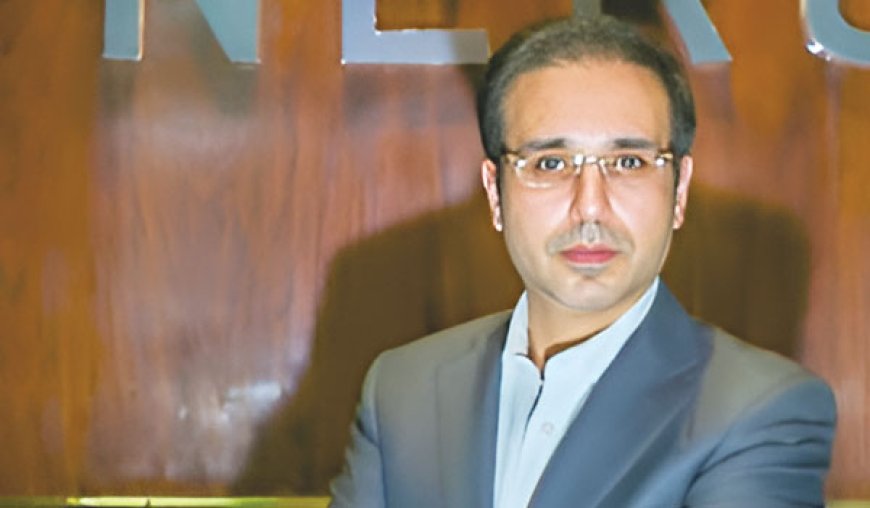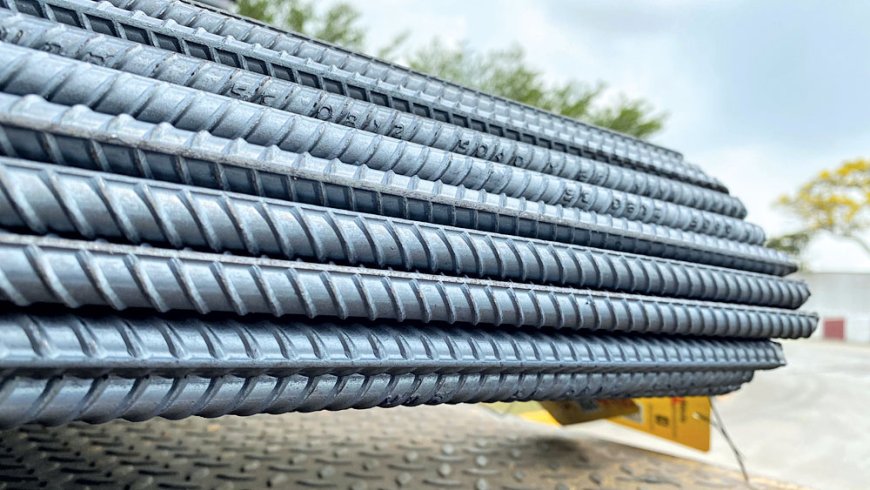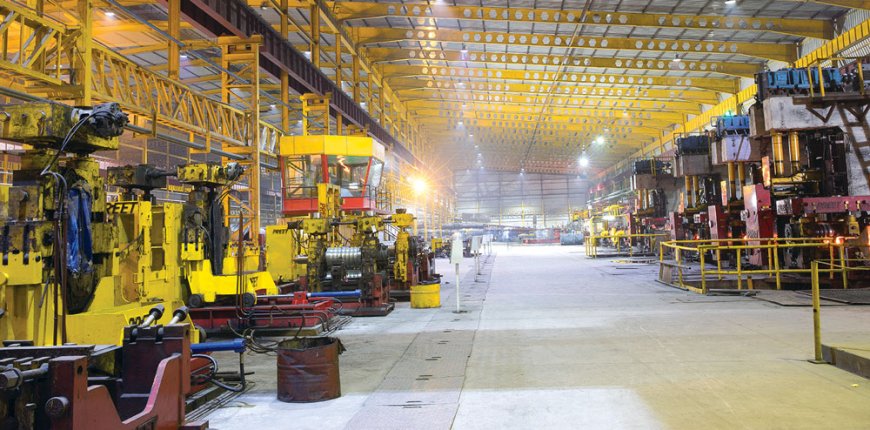At Synergy Steels, we differentiate ourselves in the stainless-steel industry through a combination of scale, innovation, and sustainability.

What market trends are currently shaping the stainless-steel industry?
Several significant trends are currently shaping the stainless-steel industry. Firstly, we’re seeing robust market growth. The global stainless-steel market, valued at USD 205.87 billion in 2023, is projected to reach USD 342.07 billion by 2032, growing at a CAGR of 5.8%. Asia Pacific continues to dominate, holding a 68.32% market share in 2023. We are also witnessing a galvanized demand from emerging sectors, particularly in sustainable technologies. The rise of hydrogen electrolyzers and electric vehicle motors is creating new avenues for stainless steel applications. Stainless steel’s recyclability, non-toxicity, and longevity make it an ideal material for sustainable construction. As green building initiatives gain traction across India, we anticipate increased demand from this segment. The energy transition is also driving market trends. The focus on nuclear energy and new initiatives like the Pump Storage Policy are likely to boost demand for our heat-resistant products. Our industry is well-positioned to support these evolving energy infrastructure needs. Looking ahead, we project stainless steel demand in India to reach 9.6 million metric tons by 2030. This growth is underpinned by both traditional sectors and these emerging trends with a projected segment-wise distribution of Architecture Building and Construction Industries (ABC) along with Automotive, Railways, and Transport (ART) sectors projecting a collective demand of 67%. by 2030. (CRISIL Report)
What are your company’s core stainless steel products and services? What markets do you primarily serve?
As one of India’s leading stainless-steel long product manufacturers, we pride ourselves on our comprehensive range of high-quality offerings. Our core products span from the foundational 200 series to advanced austenitic grades like 304, 310, and 316. This diverse portfolio allows us to cater to a wide array of industrial needs with precision and flexibility. We specialize in electrode grades such as ER308, ER316 and ER310 as well as niche alloys like high-nickel 201. Our 202 grade is particularly sought after for wire mesh and fine wire applications. This extensive range enables us to provide tailored solutions across various sectors. Currently, we are strategically expanding our capabilities to focus on high-value-added products. This includes wire, bright bars, stainless steel rebars, wire rods, and fasteners, positioning us to meet evolving market demands and enhance our competitive edge. In terms of market reach, we’re proud to serve over 30 countries globally. Our primary export destinations include key markets in the European Union, Turkey, and Latin America. We have identified significant growth potential in the Middle East and Far East regions, where we are actively working to strengthen our presence.

How do you differentiate yourself from competitors in the stainless-steel industry?
At Synergy Steels, we differentiate ourselves in the stainless-steel industry through a combination of scale, innovation, and sustainability. With a production capacity of 250,000 tonnes and a turnover exceeding USD 315 million, we are positioned as India’s 4th largest long products player in the stainless- steel market. Our state-of-the-art facilities in Alwar, Rajasthan, are ISO 9001:2015 certified and equipped with the latest technology-driven machinery, enabling us to produce high-quality, value-added products. We are committed to community engagement and sustainability, supporting NGOs like Manav Kalyan and Mera Parivar in empowering local communities. Our initiatives also include setting up captive solar power and leveraging renewable energy agreements to minimize our carbon footprint.
How is your company leveraging technology to improve production efficiency and product quality in stainless steel?
We prioritize technology as a key driver of our growth and efficiency. We are actively pursuing partnerships with international companies and technocrats known for their advanced manufacturing technologies. This collaboration allows us to integrate cutting-edge innovations into our production processes, enhancing both efficiency and product quality. Our strategic investments in these technologies ensure that we not only stay ahead of industry trends but also consistently deliver superior value to our customers and stakeholders.
What sustainability initiatives has your company implemented? How do you address environmental concerns related to stainless steel production?
We are actively developing a comprehensive renewable energy strategy for our operations, exploring options like solar captive, group captive structures, and hybrid solutions. Our goal is to significantly reduce our carbon footprint by substituting a portion of our energy consumption with sustainable sources. This initiative aligns with India’s 2070 net-zero emissions target and reflects our commitment to environmental responsibility. The firm has been offsetting its carbon impact by availing carbon credits. We are taking a measured approach to ensure our sustainability efforts are both impactful and tailored to our organizational needs, positioning us as a responsible leader in India’s stainless-steel industry.

What types of material handling equipment does your company use in its operations?
In our operations as the 4th largest long product stainless steel producer, we utilize a comprehensive range of material handling equipment to enhance efficiency, safety, and sustainability. Our fleet includes Hydra Fork Lifts for efficient load handling, Overhead Cranes for moving heavy materials, and Load Alls that streamline our logistics. We also employ Hydraulic Grabbers for precise handling of bulky materials, Vibro Feeders for consistent raw material feeding, Backhoe Loaders for versatile excavation and transport tasks, and Charging Conveyers to maintain a smooth production flow into our furnaces.
What are the biggest challenges currently facing the stainless steel industry, and how is your company addressing them?
The stainless-steel industry is currently grappling with two major challenges: raw material scarcity and import reliance, with raw materials accounting for 70% of our cost of sales. However, recent policy shifts are offering some relief. The Union Budget’s reduction of ferronickel import duties to zero and the extension of duty exemption on ferrous scrap until 2026 are creating a more supportive environment for domestic capacity expansion. We are also contending with subsidized imports, particularly from China and Indonesia, which pressure our MSME sector. The DGTR’s recommendation to extend countervailing duties on stainless steel tubes and pipes from these countries could provide much-needed protection for domestic players. Our company is addressing these challenges by focusing on product diversification and engaging with industry bodies to ensure a level playing field. Despite these hurdles, we remain optimistic about the industry’s future, given the government’s infrastructure push and the growing demand for sustainable materials. We are positioning ourselves to capitalize on these opportunities while navigating current headwinds.
What opportunities do you see emerging in the stainless-steel sector in the next 5-10 years?
We see significant opportunities in the stainless-steel sector over the next 5-10 years. The government’s ₹11,11,111 crore infrastructure investment and twelve new industrial parks will drive demand. The ₹1 lakh crore for private sector research should boost innovation in our industry. Energy transition initiatives, including the Pump Storage Policy and focus on nuclear energy, will likely increase demand for our heat-resistant products. India aims to raise per capita stainless-steel consumption from 2.5 kg to 11-12 kg by 2047, targeting 19-20 MT production. This requires a 4.5-fold capacity increase to 30-32 MT over 25 years. We’re also seeing growing potential in stainless steel rebars, which offer superior corrosion resistance for challenging environments.








